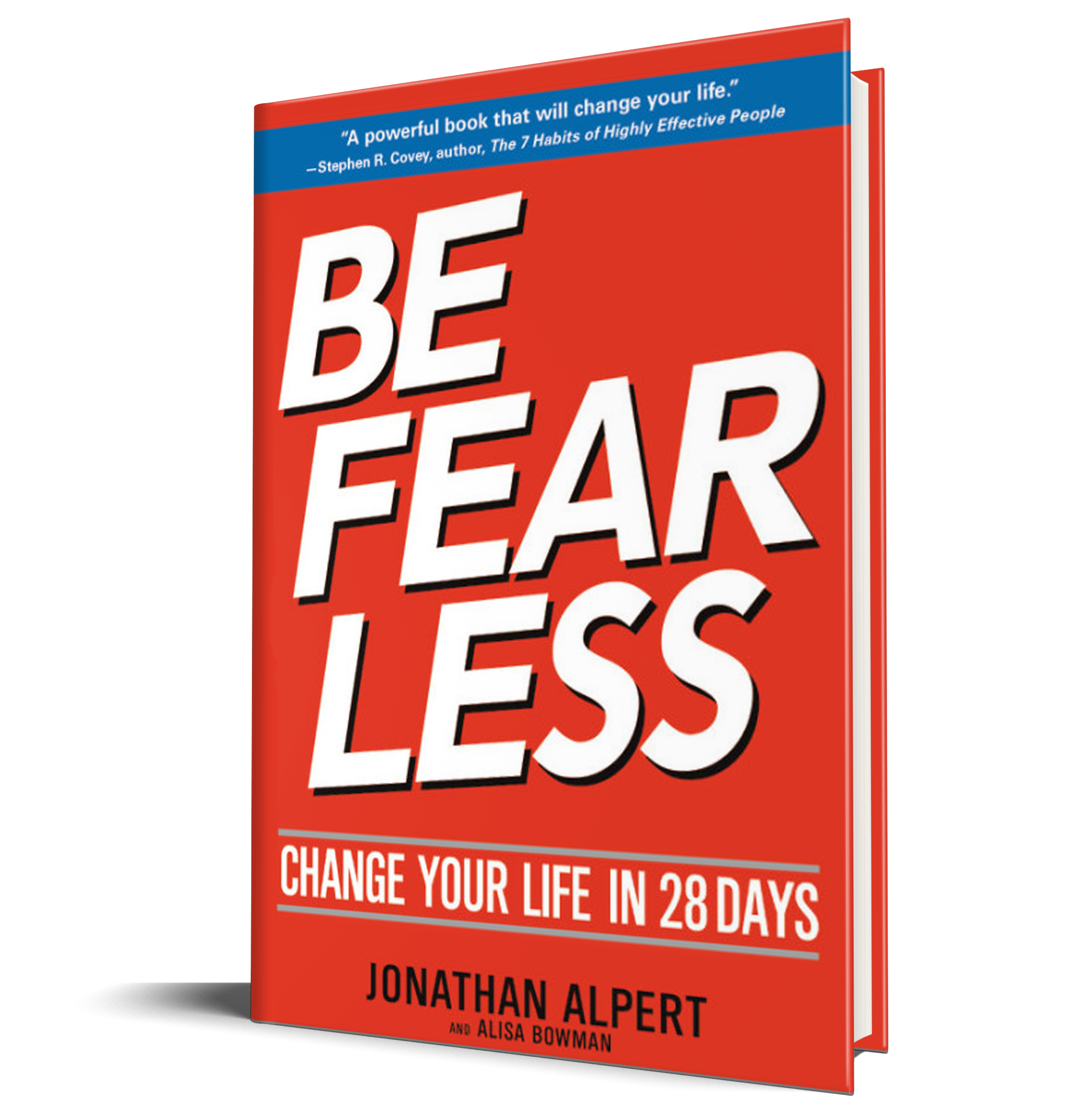When it comes to setting a goal, physical preparation and emotional preparation go hand in hand.
Thrive Global invites voices from many spheres to share their perspectives on our Community platform. Community stories are not commissioned by our editorial team, and opinions expressed by Community contributors do not reflect the opinions of Thrive Global or its employees. More information on our Community guidelines is available here.
By
- Jonathan Alpert, Psychotherapist, executive performance coach, and author of Be Fearless: Change Your Life in 28 Days. Twitter: @JonathanAlpert

Getty Images
As we get into Fall there are dozens of marathons across the country, most notable of course is the New York City Marathon on November 7. By this point, participants are probably gearing up for their final training runs and in top running shape. Despite that, anxiety levels can run high and they often feel deflated due to the grueling months they’ve spent training for the race.
Many of my clients recognize that such a big part of doing well in an endurance sport, such as a marathon, lies in the mental tricks they can apply to the sport, thereby, gaining the edge they need by tweaking their mindset.
Here’s how to work your mental game come race day:
1. Accept the notion that anxiety is normal. Understand what’s happening to your body: the nervous system gets revved up, heart rate increases, breathing intensifies, and you’re ready to fight or flee. Mentally you feel uncertainty as questions abound: “How will I feel?” “Will my knees give out?” “Will I complete the race?” These questions spike your anxiety. Turn this around by getting excited about the race and know that anxiety and excitement, on a physiological level, are quite similar. In both cases the body gets pumped up to prepare to take action. The difference is in your head and how you think about things
2. Watch your self-talk. Negative talk such as “I’ll never finish it,” will be entirely de-motivating and weigh you down mentally, while positive self-talk such as “I’m in great shape and have trained hard for this,” will provide you with the necessary drive and determination.
3. Set realistic goals for finishing. Make sure they are doable and within reach. If you’re a 10-minute miler, then don’t set and run at an eight-minute pace starting out. Remember, it truly isn’t a sprint — it’s literally a marathon. Pace yourself in a way that is consistent with your goals. Break the larger goal of completing the 26.2 mile race into smaller goals. For example, four ten kilometer races, one at a time.
4. Own your marathon. This is your marathon, not anyone else’s. Rather than being distracted by runners who might pass you, go at your pace and know that each runner, including you, has a unique and personal story.
5. Visualization is a powerful tool. If you see it in your mind then it’s a reality for your body. Just like thinking of juice dripping off a tangy lemon makes you salivate, visualizing certain things on race day will give you a boost. Prior to the race, psych yourself up by envisioning the course in its entirety. Include cheering crowds, landmarks, hills, etc. Look forward to the relief, bliss, and satisfaction of completing the race. During the race, visualize yourself as a graceful gazelle striding effortlessly across the land. Imagine you’re on cruise control or auto-pilot. If you feel tight or achy, imagine your muscles smooth and soft and your joints light and gel-like. Relax your jaw and neck while you glide through different parts of the race. Remember, a relaxed body functions efficiently and with strength and endurance.
6. Make good use of your friends. Position them throughout the course and look forward to their cheers and support. This will distract you from pounding the pavement and give you a boost. Be sure to put your name on your shirt too as hearing it screamed will be exciting and encouraging.
7. Distract yourself. Boredom and pain are common and are inconsistent with success. Counter those feelings by taking in the crowd, enjoying the scenery and festivities, singing in your head, and by talking to your fellow runners.
Finally, have fun and good luck!
For more tips on living a healthy stress free life check out my book Be Fearless: Change Your Life in 28 Days.


Jonathan Alpert, Psychotherapist, executive performance coach, and author of Be Fearless: Change Your Life in 28 Days. Twitter: @JonathanAlpert
Jonathan Alpert is a psychotherapist, columnist, performance coach and author in Manhattan.
As a psychotherapist, he has helped countless couples and individuals overcome a wide range of challenges and go on to achieve success. He discussed his results-oriented approach in his 2012 New York Times Opinion piece, “In Therapy Forever? Enough Already”, which continues to be debated and garner international attention.
Alpert is frequently interviewed by major TV, print and digital media outlets and has appeared on the Today Show, CNN, FOX, and Good Morning America discussing current events, mental health, hard news stories, celebrities/politicians, as well as lifestyle and hot-button issues. He appears in the 2010 Oscar-winning documentary, Inside Job commenting on the financial crisis.
With his unique insight into how people think and their motivations, Alpert helps clients develop and strengthen their brands. He has been a spokesperson for NutriBullet, Liberty Mutual insurance, and Enterprise Rent-A-Car.
Jonathan’s 2012 book BE FEARLESS: Change Your Life in 28 Days has been translated into six languages worldwide. Alpert continues to provide advice to the masses through his Inc.com, Huffington Post, and Thrive columns.
@JonathanAlpert
Share your comments below. Please read our commenting guidelines before posting. If you have a concern about a comment, report it here.








